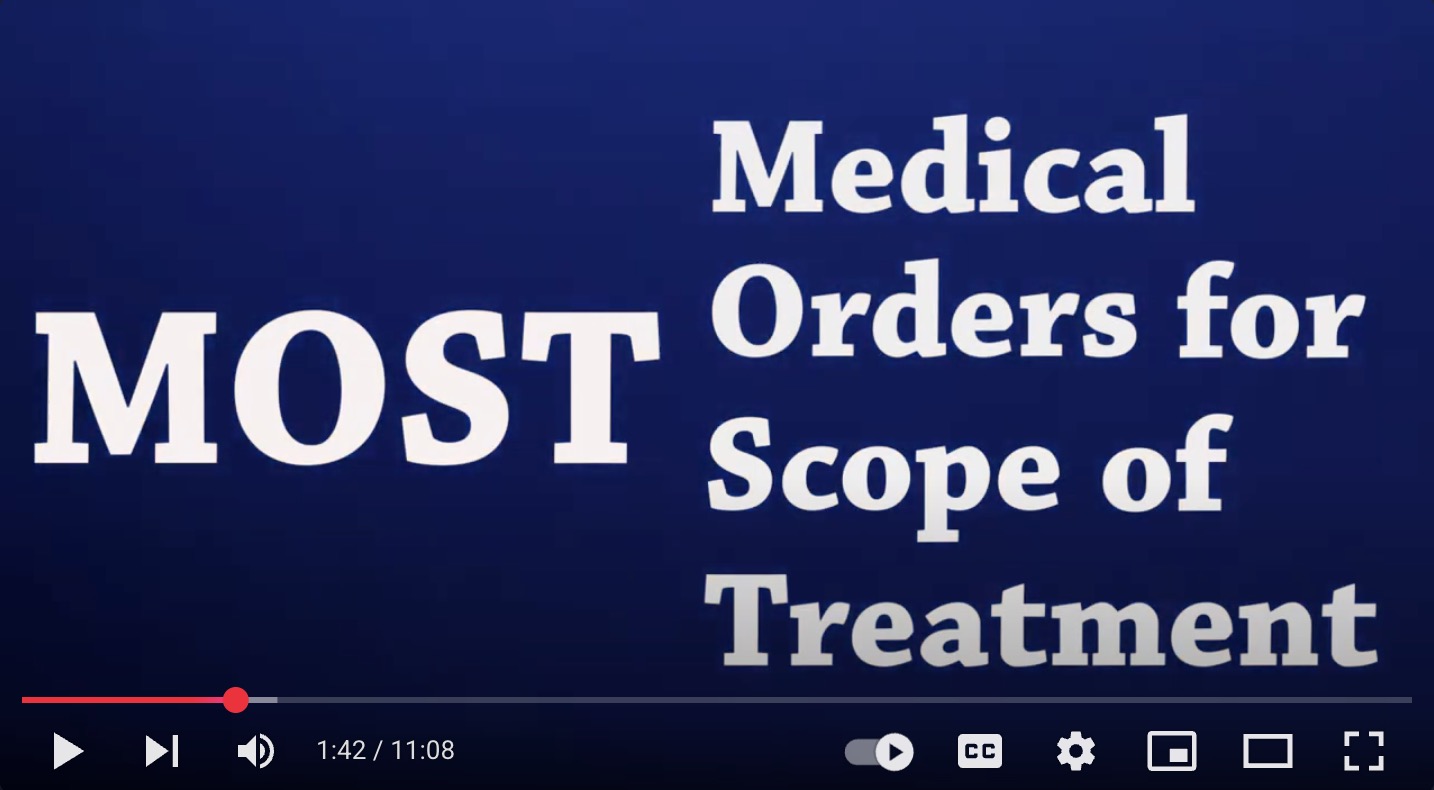Colorado MOST
Medical Orders for Scope of Treatment
The Colorado MOST (Medical Orders for Scope of Treatment) form is part of the National POLST Program (Portable Orders for Life-Sustaining Treatment), which promotes standardized, patient-directed medical orders across the United States. The Center for Bioethics and Humanities at the University of Colorado School of Medicine is pleased to be Colorado MOST's administrative home as of summer 2025.
The MOST process helps ensure that care aligns with a patient’s values and goals, even in urgent or complex medical situations. It empowers patients and their care teams to make informed, values-based decisions that are respected throughout the healthcare system.
MOST is intended for patients with serious, life-limiting conditions, including advanced frailty, who are at risk for life-threatening clinical events. It documents a patient’s treatment preferences as medical orders, helping guide care across all settings. Completing a MOST form is entirely voluntary. Under Colorado law (C.R.S. 15-18.7-108), no healthcare facility may require a patient to complete one as a condition of admission or treatment.
MOST forms are portable and must be honored in any care setting — hospital, clinic, long-term care, hospice, or home. While the original is often printed on brightly colored paper for visibility, copies (faxed, scanned, or photocopied) are also valid. The form is completed through a conversation between a healthcare professional and the patient or their authorized healthcare agent. It must be signed by the patient/agent and a physician, advanced practice nurse (APN), or physician assistant (PA), whose signature makes the preferences legally actionable.
ABOUT
FOR HEALTHCARE PROFESSIONALS
Additional Resources
MOST Video for Health Care Professionals - 40 minutes (also at right)
Quality Indicator Toolkits (from National POLST for health care facilities)
